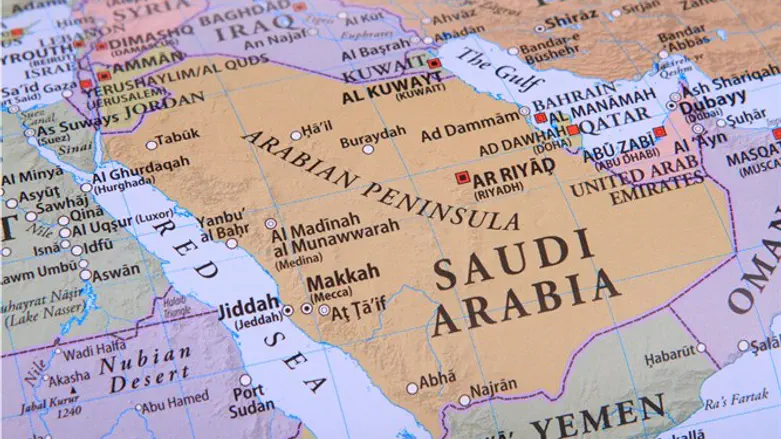
The US government has obtained intelligence that Saudi Arabia has significantly escalated its ballistic missile program with the help of China, three sources with direct knowledge of the matter told CNN on Wednesday.
The Trump administration did not initially disclose its knowledge of this classified development to key members of Congress, the sources said, infuriating Democrats who discovered it outside of regular US government channels and concluded it had been deliberately left out of a series of briefings where they say it should have been presented.
The previously unreported classified intelligence indicates Saudi Arabia has expanded both its missile infrastructure and technology through recent purchases from China, according to CNN.
The discovery of the Saudi efforts has heightened concerns among members of Congress over a potential arms race in the Middle East, and whether it signals a tacit approval by the Trump administration as it seeks to counter Iran.
The intelligence also raises questions about the administration's commitment to non-proliferation in the Middle East and the extent to which Congress is kept abreast of foreign policy developments in a volatile region.
While the Saudis' ultimate goal has not been conclusively assessed by US intelligence, the sources said, the missile advancement could mark another step in potential Saudi efforts to one day deliver a nuclear warhead were it ever to obtain one.
Saudi Arabia has not kept its nuclear ambitions secret, but promised that its nuclear program will be used to supply domestic electricity, enabling the country to export more of its oil.
However, Saudi Arabian Crown Prince Mohammed bin Salman warned last year that "without a doubt" if Iran develops nuclear weapons, "we will follow suit as soon as possible."
Saudi Arabia is known to have purchased ballistic missiles from China several decades ago, noted CNN, and public reports speculated that more purchases may have been made as recently as 2007.
The Kingdom has never been assessed to have the ability to build its own missiles or even effectively deploy the ones it does have.
Instead, the Saudis' arsenal of Chinese-made ballistic missiles was a way to signal its potential military strength to regional foes, primarily Iran.
That, the sources told CNN, has shifted based on the new intelligence.
The CIA and the Office of the Director of National Intelligence declined to comment on any intelligence related to Saudi Arabia's ballistic missile activity or whether the US believes the Kingdom is contracting in that area with foreign partners.
A spokesman for the Saudi Embassy in the US did not respond to a request for comment.
In a statement, the Chinese Foreign Ministry said that China and Saudi Arabia are "comprehensive strategic partners," and that both countries "maintain friendly cooperation in all areas, including in the area of arms sales. Such cooperation does not violate any international laws, nor does it involve the proliferation of weapons of mass destruction."
A State Department official declined to comment on classified intelligence matters, but told CNN that Saudi Arabia remains a party to the Nuclear Nonproliferation Treaty and has accepted an obligation never to acquire nuclear weapons. The spokesperson also pointed to a recent statement by a US State Department official reaffirming the US commitment to "the goal of a Middle East free of weapons of mass destruction and delivery systems."
The report comes amid tensions between the White House and Congress over the US aid to Saudi Arabia.
Lawmakers are dissatisfied with President Trump’s support for Saudi Arabia, particularly since the killing of journalist Jamal Khashoggi last year.
Saudi Arabia has admitted that Khashoggi was killed after entering the Saudi consulate in Istanbul, after previously denying Turkish claims that he was murdered. At the same time, the Saudi leadership claimed Khashoggi was killed in a “rogue” operation and denies any connection to the murder.
US lawmakers have called for a stronger US response to Khashoggi’s murder and said that there was “zero question” about the involvement of the Saudi Crown Prince, of whom Khashoggi was a strong critic.
In March, the Senate passed a measure that would have cut off US military support for the Saudi-led campaign in Yemen's civil war. Trump, however, vetoed the measure.
